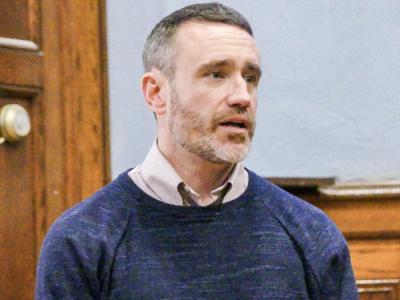Town works on plan to increase digital accessibility
More and more every year the world becomes increasingly reliant on the internet and digital tools to complete the necessary functions of day-to-day life.
However, digital access is not always a guarantee, and the “digital divide” disproportionately affects people of color, older adults, lower-income households, people with disabilities and those living in rural areas across the nation.
That’s why municipalities throughout Massachusetts have begun to partner with Vanasse Hangen Brustlin, Inc., known as “VHB,” to develop a plan to promote “digital inclusion.”
VHB is a company comprised of engineers, scientists, planners and designers who partner with various industries as well as local, state and federal government agencies to promote the enhancement and development of communities through future-focused solutions.
VHB is now looking for a solution to Wareham’s digital divide to ensure the most residents have access to the technology they need.
Once a plan is developed, it can then be implemented using the resources, tools and funding provided by the Massachusetts Broadband Institute, which is a new division of Massachusetts Technology Collaborative that aims to gain high-speed internet for communities throughout the commonwealth.
Director of Planning and Community Development Ken Buckland has partnered with VHB to develop a Digital Equity Plan for Wareham.
On Wednesday, Nov. 15, members of VHB held the first of two Digital Equity public feedback meetings focused on what the town’s needs and goals are in the realm of digital access.
Luke Mitchell, VHB project manager, said he and his team are focusing on three areas in each of their Digital Equity Plans: internet access, device availability and digital literacy/technical assistance.
According to VHB, approximately 13% of households in Wareham do not have an internet subscription and around 6% don’t have a computer.
A survey conducted by the Massachusetts Broadband Institute found that, of the Wareham respondents, about 23% felt their household internet does not meet their needs and approximately 9% said the same about their digital devices.
The survey also found that approximately 84% of respondents are concerned about cybersecurity and the 37% who reported they find it hard to pay for their internet monthly also said they were unfamiliar with the Affordable Connectivity Program.
The federal program came about during the Covid pandemic and can provide a discount of up to $30 per month off internet service for eligible households and up to $75 for households on qualifying tribal lands, according to the Federal Communications Commission website. In addition, households can receive one-time discounts on select digital devices.
According to VHB, approximately 5% of Wareham households are currently enrolled in the program.
In considering Wareham’s needs, resident Mike Bower said he was concerned with what the plan would include as 100% digital access is a goal that “can never be achieved.”
Mitchell said while the dream is to have 100% digital access across the state, or simply just Wareham, he and his team will help the town develop “actionable goals” that can be more immediately reached. Receiving feedback from people in town is a step toward defining what the right goals are.
Mitchell said prior to the public meeting, he and his team met with various groups in Wareham to hear what their digital access needs are, including the Council on Aging, the library and Wareham Public Schools.
He said approximately 25% of Wareham’s population is adults 65 years or older. The Council on Aging provides some programming for these individuals to receive technical assistance, but lacks the devices and space to provide essential classes.
He added many seniors also cannot afford internet service and don’t know of available resources.
One resident at the meeting said she doesn’t have internet because she’s not comfortable using it, adding she has difficulties navigating the town’s website.
Mitchell said it is not uncommon for residents to struggle with municipal websites and that is a problem that will be taken into consideration as his team continues to build Wareham’s Digital Equity Plan.
As for the library, while there are digital resources available, Mitchell and his team discussed with Library Director Patrick Marshall the possibilities of increasing the promotion of those resources, offering more digital training and expanding support for those wanting to use the library for employment-related reasons.
In the public schools, students have access to Chromebooks for their day-to-day work and most grades can take those devices home. However, not all households have internet access to actually use those devices.
Mitchell said another aspect of the school’s use of technology to consider is how the students actually feel about it. In one of the other towns he is a project manager for, students shared how “fatigued” they were from the constant use of technology in and outside of school.
During VHB’s presentation, some ideas were discussed for possible consideration in the Digital Equity Plan, including working with Wareham Community Television, internet access at public parks, mobile Wi-Fi hotspots and a digital navigator system.
That system would allow for trained professionals to go to the homes of individuals in need of digital assistance.
The group also suggested taking a look at the public transportation system to see what could be done in terms of getting people to digital accessible locations. In addition, they discussed what businesses in the area may already offer free internet access.
While a date for the next public meeting is not currently set, Mitchell said he and his team will evaluate all that was suggested and get that meeting set up.















